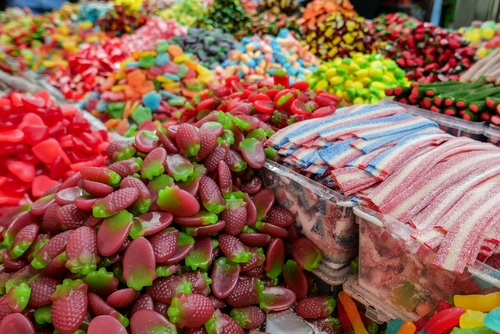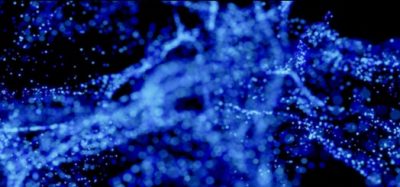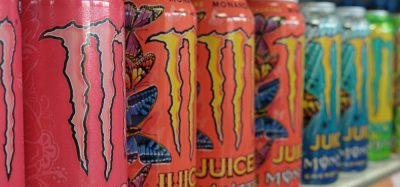West Virginia food dye ban faces first legal challenge
Posted: 13 October 2025 | Ian Westcott | No comments yet
West Virginia’s pioneering ban on six synthetic food dyes is under legal challenge from the International Association of Colour Manufacturers. The law, supported by Health Secretary Robert F Kennedy Jr as part of the “Make America Healthy Again” initiative, is being phased in across schools and commercial food sales, with officials confident it will withstand scrutiny.


Synthetic food dyes in candy and other products are facing a phased ban in West Virginia under the “Make America Healthy Again” initiative, amid growing concerns over children’s health. Credit: Shutterstock
Industry group takes action over six synthetic dyes
West Virginia’s landmark ban on several synthetic food dyes is facing its first legal challenge. On Monday, the International Association of Colour Manufacturers filed a lawsuit in the US District Court for the Southern District of West Virginia, seeking to overturn the prohibition. The law targets six petroleum-based dyes, including red no. 40, yellow no. 5, yellow no. 6, blue no. 1, blue no. 2 and green no. 3, which the association says are FDA-approved and safe for use. Recent studies have found synthetic dyes in one in five packaged foods and drinks within the US.
Schools already serving dye-free meals
The ban is being introduced in two phases. Since August, schools have been prohibited from serving meals containing the restricted dyes, while from 2028 the ban will extend to all food and drink sold in the state. Red no. 3 is excluded as the US Food and Drug Administration is phasing out its approval nationally.
Health concerns versus industry impact
Industry representatives warn that the ban could make it harder for businesses to operate and increase the cost of food for consumers. John H Cox, General Counsel for the International Association of Colour Manufacturers, said: “Bans on FDA-approved ingredients will make it harder for businesses to operate in West Virginia and other states, and raise the cost of food for consumers.”
Join our free webinar: Rethinking Listeria monitoring: faster, simpler solutions for food safety & environmental testing
Discover how modern Listeria monitoring solutions can support faster, more reliable food and environmental testing, and help elevate your laboratory’s efficiency and confidence in results.
Date: 18 March 2026 | Time: 15:00 GMT
Public concern over synthetic dyes has grown amid research linking them to behavioural changes in children, such as hyperactivity and inattentiveness. Scott Faber, Senior Vice President at the Environmental Working Group, described the additives as “cosmetic” and questioned the need for petroleum-based chemicals in children’s diets when natural alternatives exist.
Political backing and MAHA endorsement
Supporters of the ban, including Governor Patrick Morrisey, argue it is a necessary step to protect children’s health. The law was celebrated in March alongside US Department of Health and Human Services secretary Robert F Kennedy Jr, who described it as a measure advancing the “Make America Healthy Again” (MAHA) initiative, bringing national attention to food safety and public health.
West Virginia plans to continue implementing the law while the legal challenge proceeds, with schools already sourcing dye-free meals and officials expressing confidence the legislation will withstand scrutiny.
Related topics
Flavours & colours, Food Safety, Free From, Health & Nutrition, Regulation & Legislation, retail, Supply chain
Related organisations
Environmental Working Group, International Association of Colour Manufacturers, US Department of Health and Human Services, US District Court for the Southern District of West Virginia, US Food and Drug Administration, West Virginia state government
Related regions
Related people
Adam Burkhammer, Drew Galang, John H. Cox, Patrick Morrisey, Robert F. Kennedy Jr., Scott Faber









